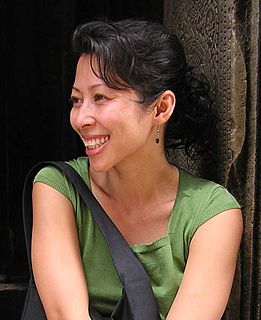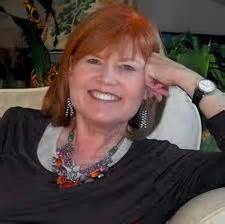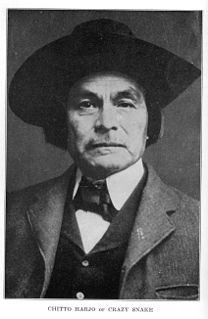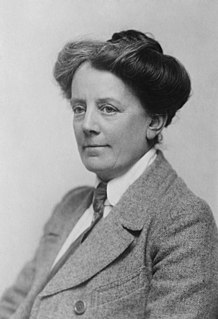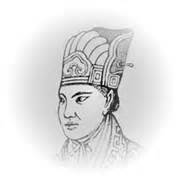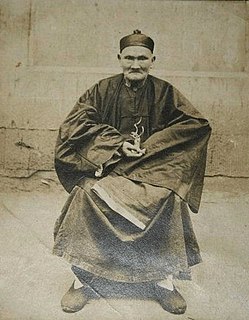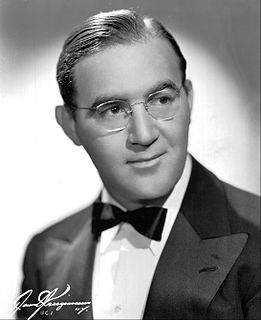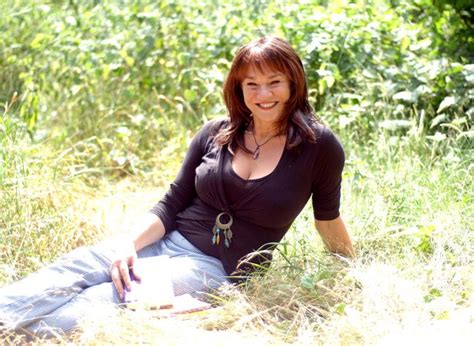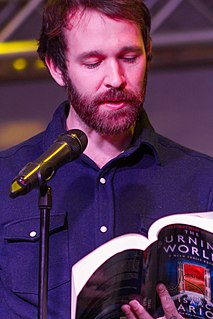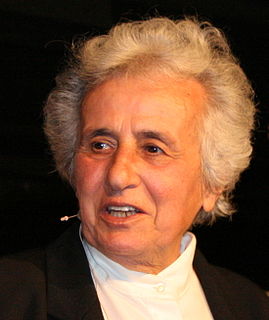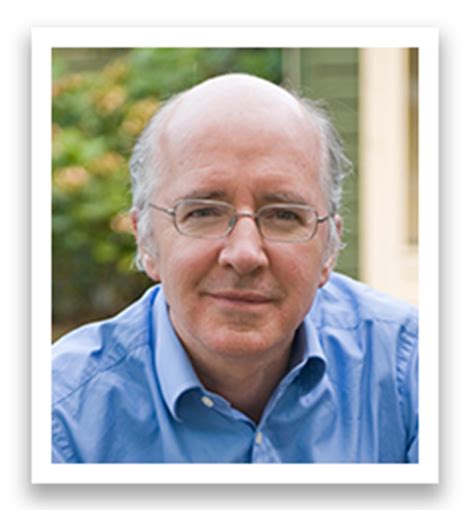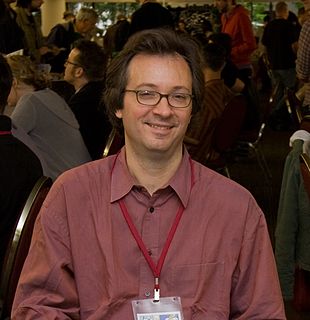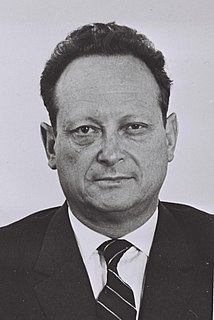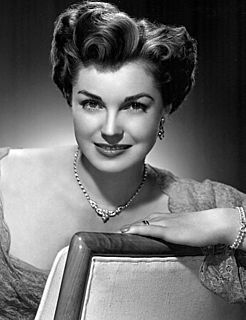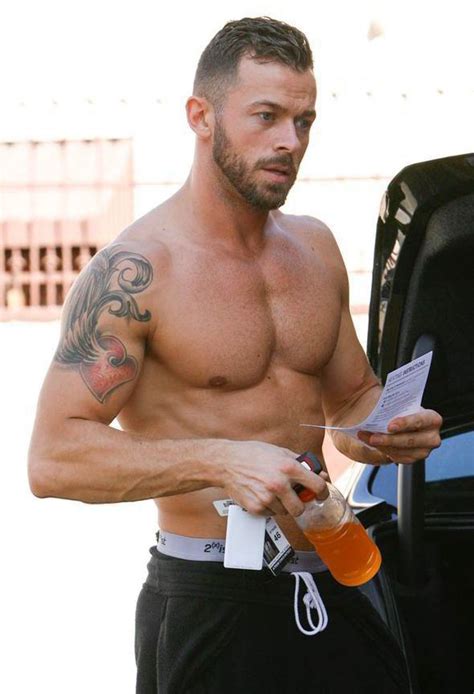Top 1200 Arrived Quotes & Sayings - Page 20
Explore popular Arrived quotes.
Last updated on April 16, 2025.
The whole military structure in Haiti that existed until the early 1990s was put in place by the American occupation. At the top there were Southern white officers, who led an army that crushed the indigenous resistance - the cacos. A high-ranking U.S. officer said when he arrived, "To think these niggers speak French!" Later, Haitian officers attended the notorious School of the Americas at Fort Benning. The threat from the U.S. is something that is always hanging over people's heads: If we don't behave, we'll have occupation again.
The biggest surprise for me, without a doubt, was that the first black people who came to the United States weren't the 20 who arrived in Jamestown in 1619. All of us had been taught that. Well, guess what? The first African came to Florida in 1513. And the huge shock is we know his name, Juan Garrido, and that he wasn't a slave. He was free! This brother was a conquistador who came with Ponce de Leon. He was looking for the Fountain of Youth just like the white people were.
We packed up all the worldly possessions we could carry with us and took the next flight to Hawaii from Washington. It took just about every cent my family had to our name just to pay the plane fare. When we arrived, we had about $15 left among us. We were really in pitiful shape. But we were together, and we were alive, and this was all that mattered.
If you are going towards the easy, the ego starts dying. And when there is no ego left, you have arrived to your reality - the right, the truth. And truth and right have to be natural. Easy means natural; you can find them without any effort. Easy is right means natural is right, effortlessness is right, egolessness is right.
I suppose I like certainty as much as anyone else, but I also feel that the hidden costs are high, that we pay a heavy price for our convictions. This is a human issue as well as a writing issue - at least in the personal essay as I practice it. Any real essayist knows that certainty is an editorial decision, arrived at not through conviction but through suppression, the denial of a whole range of possibilities, of alternatives that we jettison, sometimes necessarily, in order to steady the ship.
To me, the amazing thing is that so much that was science fiction back then, political fiction, today is reality. We have indeed a spacecraft called an international space station. And we have the diversity of this planet working on that ship, including Americans and Russians working side by side. I think the imagineers are the ones that set the goal. And the inventors and the technicians see that as a goal to work toward, or the political scientists and the diplomats. And eventually, that's arrived at.
Here life goes on, even and monotonous on the surface, full of lightning, of summits and of despair, in its depths. We have now arrived at a stage in life so rich in new perceptions that cannot be transmitted to those at another stage - one feels at the same time full of so much gentleness and so much despair - the enigma of this life grows, grows, drowns one and crushes one, then all of a sudden in a supreme moment of light one becomes aware of the sacred.
When I arrived in America, though I had left the war physically far behind, in my mind, the soldiers were still chasing to kill me, my stomach was always hungry, and my fear and distrust kept me from opening up to new friendships. I thought the war was over when I left Cambodia, but I realize now that for survivors and all those involved, the war is never over just because the guns have fallen silent.
In my dream I hadn't arrived at this street yet; this was just downloaded to me as this woman mentioned only the street name. It reminded me of hearing the words "Disneyland" and how we are instantly filled with joy and recognize it as a happy place full of fun. The words "Media Spring Street" created a movement of its own. When people just simply heard "Media Spring Street" it was like catching a wave of God and you wanted to get there as fast as you could!
Certainly something had happened to me during the night. Or after months of tension I had arrived at the edge of some precipice and now I was falling, as in a dream slowly, even as I continued to hold the thermometer in my hand, een as I stood with the soles of my slippers on the floor, even as I felt myself solidly contained by the expectant looks of my children. It was the fault of the torture that my husband had inflicted. But enough, I had to tear the pain from memory, I had to sandpaper away the scratches that were damaging my brain.
Although as a rule the absurd culminates, and it seems impossible for the voice of the individual ever to penetrate through the chorus of foolers and fooled, still there is left to the genuine works of all times a quite peculiar, silent, slow, and powerful influence; and as if by a miracle, we see them rise at last out of the turmoil like a balloon that floats up out of the thick atmosphere of this globe into purer regions. Having once arrived there, it remains at rest, and no one can any longer draw it down again.
Away back in that time-in 1492 - there was a man by the name of Columbus came from across the great ocean, and he discovered the country for the white man. . . . What did he find when he first arrived here? Did he find a white man standing on the continent then? . . . I stood here first, and Columbus first discovered me.
Life is short and tedious, and is wholly spent in wishing; we trust to find rest and enjoyment at some future time, often at an age when our best blessings, youth and health, have already left us. When at last I that time has arrived, it surprises us in the midst of fresh desires; we have got no farther when we are attacked by a fever which kills us; if we had been cured, it would only have been to give us more time for other desires.
It always happened like this: he would look and look for the keys to Satan’s Hearse and then finally he’d just give up and say, “Fine. I’ll take the fugging bus,” and on his way out the door, he’d see the keys. Keys show up when you reconcile yourself to the bus; Katherines appear when you start to disbelieve the world contains another Katherine; and, sure enough, the Eureka moment arrived just as he began to accept it would never come.
While its [Harvard's] undergraduate life was still controlled [in 1908-1912] by a select group of rich and fashionable families whose sons merely arrived when they were due to fill the places that had been waiting for them from the day they were born, it was, at the same time, opening its doors to a more cosmopolitan student population and beginning to take the first tentative steps toward mitigating the evils of a pyramidal social system that concentrated all its social honors upon the rich and the wellborn.
the writer must resist this temptation [to quote] and do his best with his own tools. It would be most convenient for us musicians if, arrived at a given emotional crisis in our work, we could simply stick in a few bars of Brahms or Schubert. Indeed many composers have no hesitation in so doing. But I have never heard the practice defended; possibly because that hideous symbol of petty larceny, the inverted comma, cannot well be worked into a musical score.
The realms of good fortune and calamity in human life are all made of thoughts and imaginings. Therefore Buddhists say that the burning of desire for gain is itself a pit of fire, while drowning in greedy love is itself a bitter sea. The moment thoughts are pure, fierce flames become a pond; the moment you become aware, the boat has arrived on the further shore. If your thoughts vary at all, your world will immediately differ, so can we not be careful?
You send me all these roses. Every time I think the last bouquet has arrived, finally, another turns up. I’m running out of vases. I didn’t know roses came in so many colors. You say they’re the perfect symbols of love because they have thorns and love is pain. I say life is pain, highness. Anyone who says differently is selling something. And you don’t get it. You say you love me, but you don’t speak my language. You don’t even realize I’m an orchid girl.
But the thought arrived inside her like a train: Marya Morevna, all in black, here and now, was a point at which all the women she had been met—the Yaichkan and the Leningrader and the chyerti maiden; the girl who saw the birds, and the girl who never did—the woman she was and the woman she might have been and the woman she would always be, forever intersecting and colliding, a thousand birds falling from a thousand oaks, over and over.
Before I had studied Zen for thirty years,
I saw mountains as mountains,
and waters as waters.
When I arrived at a more intimate knowledge, I came to the point where I saw that mountains are not mountains,
and waters are not waters.
But now that I have got its very substance
I am at rest.
For it's just that
I see mountains once again as mountains,
and waters once again as waters.
Science sometimes improves hypotheses and sometimes disproves them. But proof would be another matter and perhaps never occurs except in the realms of totally abstract tautology. We can sometimes say that if such and such abstract suppositions or postulates are given, then such and such abstract suppositions or postulates are given, then such and such must follow absolutely. But the truth about what can be perceived or arrived at by induction from perception is something else again.
When I first arrived (in New York), it seemed to me the most terrifying city in the world... all those big buildings. I remember walking on Broadway, looking up at this huge, mountainous place-and being so lonely. But things started to clear up when I met a few people on the street whom I'd met before-all of a sudden there got to be a certain familiarity about the place, and the terror kind of evaporated. There was a lot of playing going on, and the New Yorkers, of course, were a completely different crowd from what I'd known.
And if I remain in the dark about our purpose here, and the meaning of eternity, I have nevertheless arrived at an understanding of a few more modest truths: Most of us fear death. Most of us yearn to comprehend how we got here, and why-- which is to say, most of us ache to know the love of our creator. And we will no doubt feel that ache, most of us, for as long as we happen to be alive.
The first time I took my daughters to the ocean - and I love the ocean but where we swim is very rough, very New England, rip tide, not messing around ocean - and a thought arrived: I was asking my daughters to slowly recognize death, just dip their toes in its fathomless edge, to know it is there, even in the night when we don't see it and that it, in its mystery and largeness, in its terror, is the thing that makes life precious, magnificent and full of never-ending curiosity.
In 1990 I did a story with Helena Christensen about a woman who lives in a trailer in the middle of the desert and finds a little crushed UFO with a martian who has survived the crash. She takes him home, and they fall in love. Later he has to meet with his fellow martians who have arrived to rescue him. It's a sad ending. This was my first truly narrative story and apparently the first narrative story in fashion photography.
The wife picked out ceramic tile for floor covering, not realizing that cost was determined by square foot, not square yard like carpet. Thinking the price was plenty reasonable, she had an extra room of tile ordered for installation. When the bill arrived, it was staggering. She and her husband began a fight that continued all through the construction job. They ended up divorced, but not until she had broken every window.
We've begun at last to wonder about our origins, star stuff contemplating the stars, organized collections of ten billion billion billion atoms contemplating the evolution of matter, tracing that long path by which it arrived at consciousness here on the planet Earth and perhaps throughout the cosmos. Our obligation to survive and flourish is owed not just to ourselves but also to that cosmos, ancient and vast, from which we spring.
A grower of chrysanthemums awaited a visit from the emperor, who was coming to enjoy his blossoms, of which there were hundreds in bloom. The grower selected one magnificent specimen, then cut down all the others, leaving this one perfect flower. The emperor arrived and sat for several hours quietly gazing at this beautiful flower, letting its beauty have its way with him. Can you imagine being so caught up in appreciation of one flower that everything else fades into the background?
When we did eventually get to the party - me walking next to Dad's Volvo driving at five miles an hour - I had a horrible time. Everyone laughed at first but then more or less ignored me. In a mood of defiant stuffed oliveness I did have a dance by myself but things kept crashing to the floor around me. The host asked if I would sit down. I had a go at that but it was useless. In the end I was at the gate for about an hour before Dad arrived.
Am going to cross Pacific on a wooden raft to support a theory that the South Sea islands were peopled from Peru. Will you come? I guarantee nothing but a free trip to Peru and the South Sea islands and back, but you will find good use for your technical abilities on the voyage. Reply at once.' Next day the following telegram arrived from Torstein: COMING. TORSTEIN.
I used to think I should like to be a bookbinder or bookseller it seemed to me a most delightful trade and I wished or thought of nothing better. More lately I thought I should be a minister, it seemed so serious and useful a profession, and I entered but little into the merits of religion and the duties of a minister. Every one dissuaded me from the notion, and before I arrived at any age to require a real decision, science had claimed me.
The book was in her lap; she had read no further. The power to change one’s life comes from a paragraph, a lone remark. The lines that penetrate us are slender, like the flukes that live in river water and enter the bodies of swimmers. She was excited, filled with strength. The polished sentences had arrived, it seemed, like so many other things, at just the right time. How can we imagine what our lives should be without the illumination of the lives of others?
When I arrived in Beirut from Europe, I felt the oppressive, damp heat, saw the unkempt palm trees and smelt the Arabic coffee, the fruit stalls and the over-spiced meat. It was the beginning of the Orient. And when I flew back to Beirut from Iran, I could pick up the British papers, ask for a gin and tonic at any bar, choose a French, Italian, or German restaurant for dinner. It was the beginning of the West. All things to all people, the Lebanese rarely questioned their own identity.
A free thinker used to be a man who had been educated on ideas of religion, law, morality, and had arrived at free thought by virtue of his own struggle and toil; but now a new type of born freethinker has been appearing, who’ve never even heard that there have been laws of morality and religion, and that there are authorities, but who simply grow up with negative ideas about everything, that is savages.
All I'm arguing for really is that we should have a conversation where the best ideas really thrive, where there's no taboo against criticizing bad ideas, and where everyone who shows up, in order to get their ideas entertained, has to meet some obvious burdens of intellectual rigor and self-criticism and honesty-and when people fail to do that, we are free to stop listening to them. What religion has had up until this moment is a different set of rules that apply only to it, which is you have to respect my religious certainty even though I'm telling you I arrived at it irrationally.
I think the world has mostly ended because the cities we wander through are as rotten as we are. Buildings have collapsed. Rusted cars clog the streets. Most glass is shattered and the wind drifting through the hollow high-rises moans like an animal left to die. I don't know what happened. Disease? War? Social collapse? Or was it just us? The Dead replacing the Living? I guess it's not so important. Once you're arrived at the end of the world, it hardly matters which road you took.
Auschwitz was one of the wealthiest places in the world. Everyone who was deported there had been in such a hurry that they were only able to take along the things they loved the most. Well, of course, a musician would take along her instrument. But then they would take these precious possessions away from the prisoners once they arrived. All these things were kept in a part of the camp the prisoners called "Canada." It was like a giant warehouse.
English was my fourth language. I arrived, I enrolled in public school, as a child, I believe I was about six years old when we finally landed in Michigan. And I was initially put in special education because I couldn't quite wrap my mind around the English language because I was listening to Hungarian and Albanian and German. My mind broke down like I couldn't quite wrap my mind around the fourth language.
I'll always love Paraguay. It's this most exotic place configured out of the imagination, the whole country.Paraguay will always be a special place in my heart. I go back a long way. I first arrived as a refugee in 1982 from the Falklands War. So it was a safe haven then, and it has become something exotic since then. I feel like I'd like the dust to settle a little bit before going back.
My parents have always had a very limited command of English. Of course, when we first arrived in the UK, none of us spoke English, but it's much easier for a child to pick up languages. But the problem was not a lack of English; the problem was poor communication in any language. Remember, my parents came from rural Bangladesh with little education. It was alarming for them, I'm sure, to watch their boy very quickly exhaust whatever ability they had to teach the child something.
Hispanic gives us all one ultimate paternal cultural progenitor: Spain. The diverse cultures already on the American shores when the Europeans arrived, as well as those introduced because of the African slave trade, are completely obliterated by the term. Hispanic is nothing more than a concession made by the U. S. legislature when they saw they couldn't get rid of us. If we won't go away, why not at least Europeanize us, make us presentable guests at the dinner table, take away our feathers and rattles and civilize us once and for all.
[Regarding] the soul, I'm a little wary of any discourse on that topic that pretends to have an answer, so I tend to keep my musings to myself. There is interesting, legitimate metaphysical work on the topic going at least as far back as Leibniz and continuing today, following the theme that consciousness, or at least computation, might be at least as fundamental as phenomena such as space, time, energy, and matter, which are the usual subject matter of physics. I follow that sort of thing with interest but with very modest expectations that answers will be arrived at during my lifetime.
I have not created any characters nor have I changed my name. The last time I did, the band turned 20, and I said, "I'm going to stop changing my names. I'll present myself as Rubén Albarrán." During that time, I was visiting certain communities and one of them baptized me with my birth name. So I said, "OK, I've received it, now I will use it," and I have. If another one comes, then it will come, but it hasn't arrived yet and I'm fine for now.
Whoever has not arrived at the clear insight that there might be greatness entirely outside his own sphere for which he has no understanding, whoever does not have at least a dim inkling in which area of the human spirit this greatness might be situated: he is within his own sphere either without genius, or he has not educated himself up to the point of the classical attitude.
Know that wherever you are in your life right now is both temporary, and exactly where you are supposed to be. You have arrived at this moment to learn what you must learn, so you can become the person you need to be to create the life you truly want. Even when life is difficult or challenging-especially when life is difficult and challenging-the present is always an opportunity for us to learn, grow, and become better than we've ever been before.
It may merely be apocryphal that when the Wizard saw the glass bottle he gasped, and clutched his heart. The story is told in so many ways, depending on who is doing the telling, and what needs to be heard at the time. It is a matter of history, however, that shortly thereafter, the Wizard absconded from the Palace. He left in the way he had first arrived-- a hot-air balloon-- just a few hours before seditious ministers were to lead a Palace revolt and to hold an execution without trial.
Sir Alex has a special place in my life. In fact, he was the main man. I was not famous, I was not a star. I arrived at Old Trafford as just another young talent. He was the one who told me to do all the right things. He gave me the opportunity to play in one of the biggest clubs in the world. So he is one of the most important people in the world for me. I worked with Sir Alex for a few years and I know he deserves everything that he has achieved in his career. He works so hard, he is clever, he has experience, he is a human guy.
I was reading through all these NSA programs that Snowden has revealed, and one of the ones that fascinated me was that smart TVs can be used to look at you in your room. That is totally like the telescreen from 1984. It's not sort of like it, it's not a lot like it, it is it. And the ability of the NSA to turn on your cell phone, even if it's powered down, and listen to you in your home - that's insane to me. People had been warning that 1984 was just around the corner. Well, it has arrived, and Snowden has proven that.
I gathered all of the Jewish mukhtars, who have contact with Arabs in different villages and asked them to whisper in the ears of some Arabs that a great Jewish reinforcement has arrived in Galile and that it is going to burn all of the villages of the Huleh. They should suggest to these Arabs, as their friends, to escape while there is still time... The tactic reached its goal completely. The building of the police station at Halsa fell into our hands without a shot. The wide areas were cleaned.
There have been many poets who have lived at the fifth center of creativity and never gone ahead - many painters, many dancers, many singers who created great art, but never moved to the third eye. And there have been mystics who have remained with the third eye, knowing their own inner beauty; it is so fulfilling that they thought they had arrived. Somebody is needed to tell you that there is still something more ahead; otherwise, in your ignorance, what you will do is almost unpredictable.
My reluctance to use alien invasion is due to the feeling that we are not likely to be invaded and taken over. It would seem to me that by the time a race has achieved deep space capability it would have matured to a point where it would have no thought of dominating another intelligent species. Further than this, there should be no economic necessity of its doing so. By the time it was able to go into deep space, it must have arrived at an energy source which would not be based on planetary natural resources.
The future is always fairyland to the young. Life is like a beautiful and winding lane, on either side bright flowers, and beautiful butterflies and tempting fruits, which we scarcely pause to admire and to taste, so eager are we to hasten to an opening which we imagine will be more beautiful still. But by degrees, as we advance, the trees grow bleak; the flowers and butterflies fail, the fruits disappear, and we find we have arrived--to reach a desert waste.
But what I kept wondering about is this: that first second when she felt her skirt burning, what did she think? Before she knew it was candles, did she think she'd done it herself? With the amazing turns of her hips, and the warmth of the music inside her, did she believe, for even one glorious second, that her passion had arrived?
Mariano the Second had been the son of a fisherman, but he'd suffered from an unfortunate tendency toward seasickness and was forced to find a respectable career that could be safely conducted on dry land. So he built boats. Mariano the Third built bigger boats. And by the time a girl from a very different type of family business arrived at their shopfront on the Mediterranean coast, Mariano the Fourth had built and patented at least half a dozen of the most advanced (and justifiably expensive) watercrafts in the world.
This person had arrived, he had illuminated her, he had ensorcelled her with notions of miracle and beauty, he had both understood and misunderstood her, he had married her, he had broken her heart, he had looked upon her with those sad and hopeless eyes, he had accepted his banishment, and now he was gone. What a stark and stunning thing was life- that such a cataclysm can enter and depart so quickly, and leave such wreckage behind!
Barely a teenager, Elizabeth Taylor was already more beautiful and voluptuous than Miss America. When she arrived at the Beverly Wilshire Hotel for our magazine shoot, I was bowled over. I couldn't believe she was only fourteen. She filled out a swimsuit better than I did. We did the pictures, including one shot of me teaching her to float. With that superstructure of hers, she floated just fine. What she couldn't do was sink.
I arrived at my way of "working" as a way of visually approximating what I feel the tone of fiction to be in prose versus the tone one might use to write biography; I would never do a biographical story using the deliberately synthetic way of cartooning I use to write fiction. I try to use the rules of typography to govern the way that I "draw," which keeps me at a sensible distance from the story as well as being a visual analog to the way we remember and conceptualize the world.
Oh, I was sobbing, like, so bad when baby arrived. Like, I don't think people have seen a man sobbing like that. It was awful, but in the most joyful way. I mean, I was picking that baby up and putting him on me. And the baby, like, halfway opened his eyes and it just made me feel like, 'Oh my god, this is the most incredible thing.'
I arrived in San Francisco in January 1951. After the Second World War, the population was so uprooted. Soldiers came back home for brief periods and took off again. So the population was very fluid, and suddenly it was as if the continent tilted west. The whole population slid west. It took 10 years for America to coalesce into a new culture. And the new culture happened in San Francisco, not New York.







